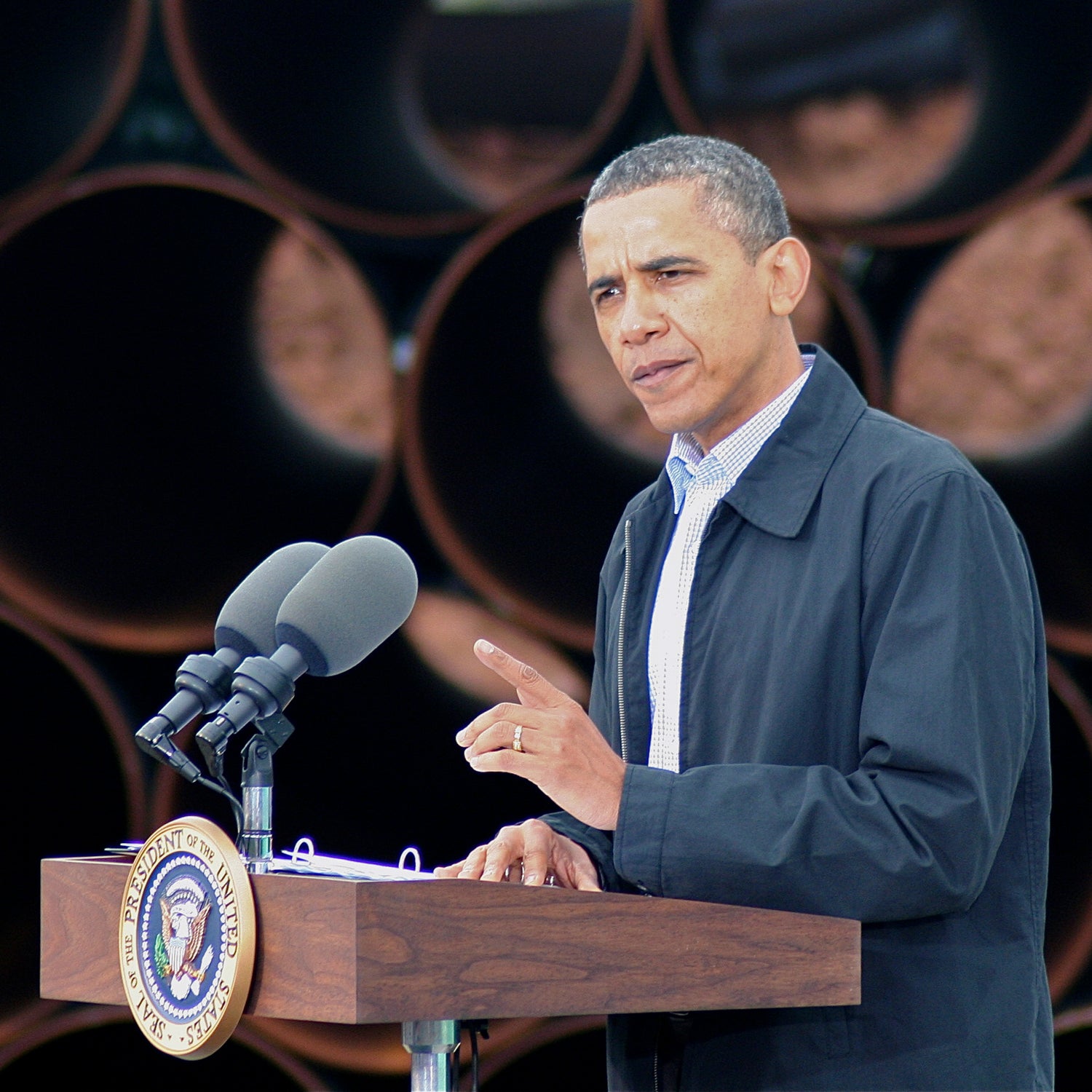President Obama on February 24 vetoed the Keystone pipeline proposal, a move which doesn’t close the book on the pipeline but concludes a six-year chapter of political posturing.
Debate over the $7 billion, 1,700-mile proposed project, which stretches from the tar sands mines of northern Alberta south through the Great Plains to refineries on the Gulf Coast, has raged for six years now. Along the way, it has become a line in the sand for environmentalists who staunchly oppose the pipeline and a nonnegotiable demand for supporters who claim it will finally end our dependence on Middle Eastern oil. As the proposal has crept through multiple State Department review processes, Native American land and treaty rights’ disputes, and major court battles in Texas and Nebraska, the petroleum industry has complained that Keystone is now the most debated pipeline in history. They say it’s time to build.
Republicans in Congress argue that Keystone XL is a much-needed infrastructure project that will provide tens of thousands of jobs and keep gas prices low. Obama that he disagrees and has ridiculed Republicans for citing the State Department’s assessment that Keystone XL would create roughly 42,000 jobs, pointing out that TransCanada, the company that would oversee the project, projected those jobs would last less than a year. After that, just 35 permanent jobs would remain. As for claims about gas prices or the larger economy, the president has been blunt. “It’s good for the Canadian oil industry,” he , “but it’s not even going to be a nominal benefit to U.S. consumers.”
Despite Obama’s veto threat, the House of Representatives on January 9, with 29 Democrats voting in favor. On January 29, the legislation passed the Senate on a 62-36 vote—still five shy of the 67 needed to override a presidential veto.
Now we can expect intense horse-trading in the effort to muster the remaining votes. But New York Senator Chuck Schumer that the Democratic caucus can sustain Obama's veto. If they do, it will be up to Obama alone to decide whether to reject Keystone XL outright or to approve it as part of a larger energy package. For those hoping for a definitive statement about which way he’s leaning, Obama was frustratingly vague during his January 20 . He touted the fact that the United States is now the top producer of wind energy, but he also praised our place as the leading producer of oil and gas. Economic growth in the new century will require wholesale rebuilding of our infrastructure, he said. “So let’s set our sights higher than a single oil pipeline. Let’s pass a bipartisan infrastructure plan that could create more than 30 times as many jobs per year and make this country stronger for decades to come.”
What shape such a plan might take—and what part Keystone XL will play—will be the subject of furious debate in the coming months.
Ted Genoways () is the author of The Chain: Farm, Factory, and the Fate of Our Food, as well as a contributing writer for Mother Jones and editor-at-large of onEarth Magazine. He wrote about Alberta's tar sands in the December 2014 issue of ���ϳԹ���.


